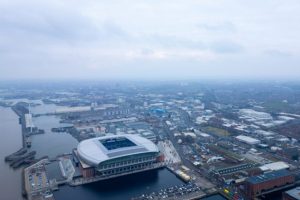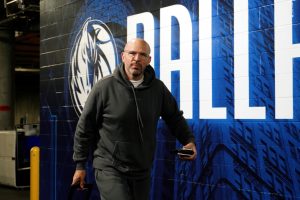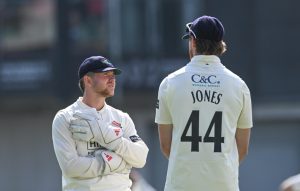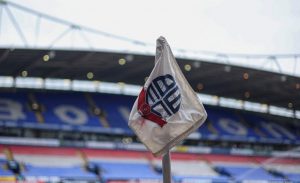Only way is up for North West’s ambitious basement football clubs
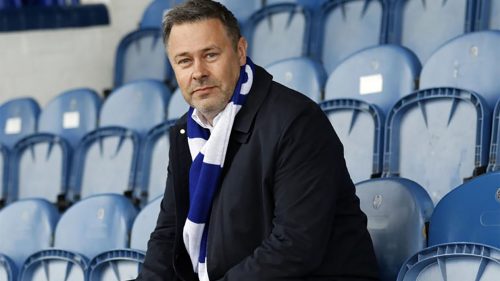
A spectre is haunting the region’s EFL League Two clubs, the spectre of relegation to the National League, and worse.
In recent years Macclesfield, Bury, Oldham and Rochdale from the North West have dropped out of the 92 and in the case of the former two, the road back is long and tortuous. Effectively going completely out of business in order to start all over again.
Bury only recently started up again after a bitter wrangle between competing fan groups, one who wanted to start all over again at Radcliffe, or the other group who were taking ownership of the name and Gigg Lane stadium.
Last weekend 4000 fans returned for the first game under fan and community ownership. By all accounts it was an emotional occasion for the start of the journey back as the Shakers beat Glossop North End 5-1.
And it will be a long journey. It took Stockport County nine years to claw back to their present level, but only when serious backing came in from local investor Mark Stott of Select Property Group and Vita Student Homes did the County revival match the ambitions of Greater Manchester’s town of culture.
Alongside Hollywood backed-Wrexham, Stockport County are favourites to gain promotion, ahead of schedule on Mark Stott’s five year plan to get County to Championship level.
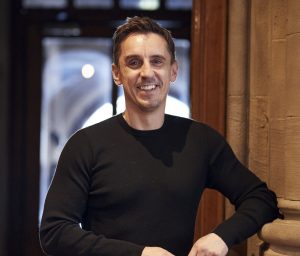
Gary Neville
Gary Neville and his old friends from the Manchester United Class of 92 who own Salford City may have something to say about that, but their wider ambitions have been thwarted by Salford Council blocking Neville’s plans to move the Ammies into the AJ Bell stadium in a swap with the community owned Rugby League Club, Salford Red Devils.
Heavily dependent on Neville and his long time backer Peter Lim, Salford have spent well to build a competitive squad off the pitch, but have arguably made the shrewdest singing of the summer in recruiting Jonathan Jackson as finance director.
The former chief executive at Wigan Athletic for 10 years from 2010 to 2020, Jackson was at Wigan as they punched way above their weight to achieve two promotions, winning the FA Cup in 2013, and competed in the Europa League.
“The potential of the Club was a very compelling narrative. The ambition of the owners to grow Salford City and compete at the highest level possible was evident immediately from my initial conversations with the directors. We know how competitive football is in this country, especially in the North West of England, but I think Salford has got something unique about it. The rapid growth of the Club over the last few years has been interesting to watch and I know the plan is to continue that trajectory.
“Hopefully I can help in different areas of the Club’s operations, starting with creating a financial model and we will use that financial model as a framework to achieve the Club’s short and long-term objectives. The Club has competed in League Two for four seasons and I am aware that there is a strong desire to push on. I am sure that we will have everybody working together to try to achieve success this season and continue the impressive progress that Salford has achieved so far. I am delighted to be part of the team!”
His arrival fills a gap left by the retirement of chairman Karen Baird who has seen the club rise through the leagues, and who kept the club going before Neville’s interest.
What is fascinating to observe at clubs on the rise is the emphasis on investing in the infrastructure of the club.
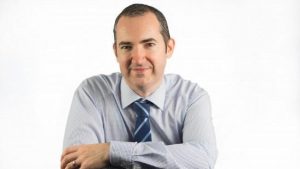
Paul Hornby, chairman, Barrow AFC
Barrow owner Paul Hornby, a local accountant, bought the club from American-based Paul Casson in a management buyout, and the club sneaked into the 92 from the National League during the global pandemic after the final league table in the 2019/20 season was decided on a points per game basis, meaning Barrow returned to the EFL as champions for the first time since 1972.
But Hornby has been crafting a quiet revolution on the Furness peninsula. He has singled out the contributions of the club’s sporting director Iain Wood as the club looks to promotion in 2023/24.
“A large part of our evolution is down to Iain Wood,” he said.
“How this club operated without his role doesn’t really bear thinking about. The work he’s put into professionalising our day-to-day running, future-proofing, and putting recruitment plans including the B team is again another world.
“I’d not only like to thank him but his family also who all have invested in the project at Barrow. We have often commented we’ve had 48 years of catch-up to do on the rest of the Football League. It now actually feels like we are getting there,” he said.
Crewe Alexandra have relatively new owners after majority owner Norman Hassall, who first joined the board in 1978, sold to a group of local business owners and investors.
“Following the restructure,” the club said, “No single shareholder would own more than 12.5% of the shares.” Again, stability and community is the watchword, rather than wild ambitions.
Nostalgic Tranmere Rovers fans may console themselves with a read of a new book by broadcaster Pat Nevin, who played for Tranmere in the 1990s when they were a game away from reaching the Premier League. Now owned by former player and FA executive Mark Palios and his family have brought stability to the Wirral and investment in facilities at Prenton Park and the surrounding area.
When he took over the club in 2014 Tranmere was in a death spiral. “The fabric of the place was poor, the attitude was resignation. Then we went out of the league, which cost another £3.5million.
“Most struggling clubs are fighting with their fanbase. We had the supporters’ trust. The club was losing £1m a year. I asked them how much they could raise. They reckoned £500,000. I said, “that gives you six months”.
“Yet, out of the league, we managed to forge a relationship with our fans.”
That attitude pervades at one of the two North West clubs who suffered relegation last season to what is arguably their appropriate level.
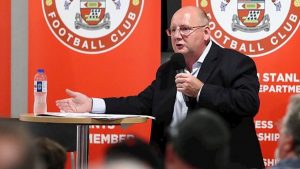
Andy Holt, Accrington Stanley chairman
One of the most consistent and straight talking club owners in the North West is Accrington Stanley’s Andy Holt whose side were relegated this season for the first time since he took them over in 2015, but he’s relaxed about that.
Speaking to the club’s YouTube channel, Holt said it’s a time to reset.
“Now we are in League Two, we can reset everything, and we are doing. The fear of relegation has gone.
“We should define winning,” he said. “Winning is not going up like Wigan did, losing £7.5 million, coming down from the Championship and not paying the players’ wages.
“That is not winning. We’re avoiding that, we want to keep a sustainable club. This is a fantastic club. It does loads in the community. We’ve got everything going for us. Every club comes to copy us now, and we’re Accrington Stanley.”
If there’s one club to worry about in the North West cluster in the EFL’s lowest division it is Morecambe. Relegated for the first time in the club’s history, the Shrimps are still officially up for sale, with interest from local business owners who have been on the board before, which would be a blessed relief following interest from 20-year-old entrepreneur Sarbjot Johal.
Morecambe’s current owners Jason Whittingham and Colin Goldring from Bond Group Investments, put the club up for sale in September 2022.
They also owned rugby union side Worcester Warriors, which was wound up by HMRC in August 2022.
World heavyweight boxing champion, Tyson Fury, who lives in the town, said he had been offered the chance to buy the club in October 2022. He sponsors the club and owns the training pitches next to the stadium.
But interest from Johal bordered on farce when he was also linked with buying Wigan Athletic this year. He is the founder of non-alcoholic drinks brand Vitanic and also claims to be chairman of private equity firm Sarb Capital, of which there is no tangible evidence that it exists.

